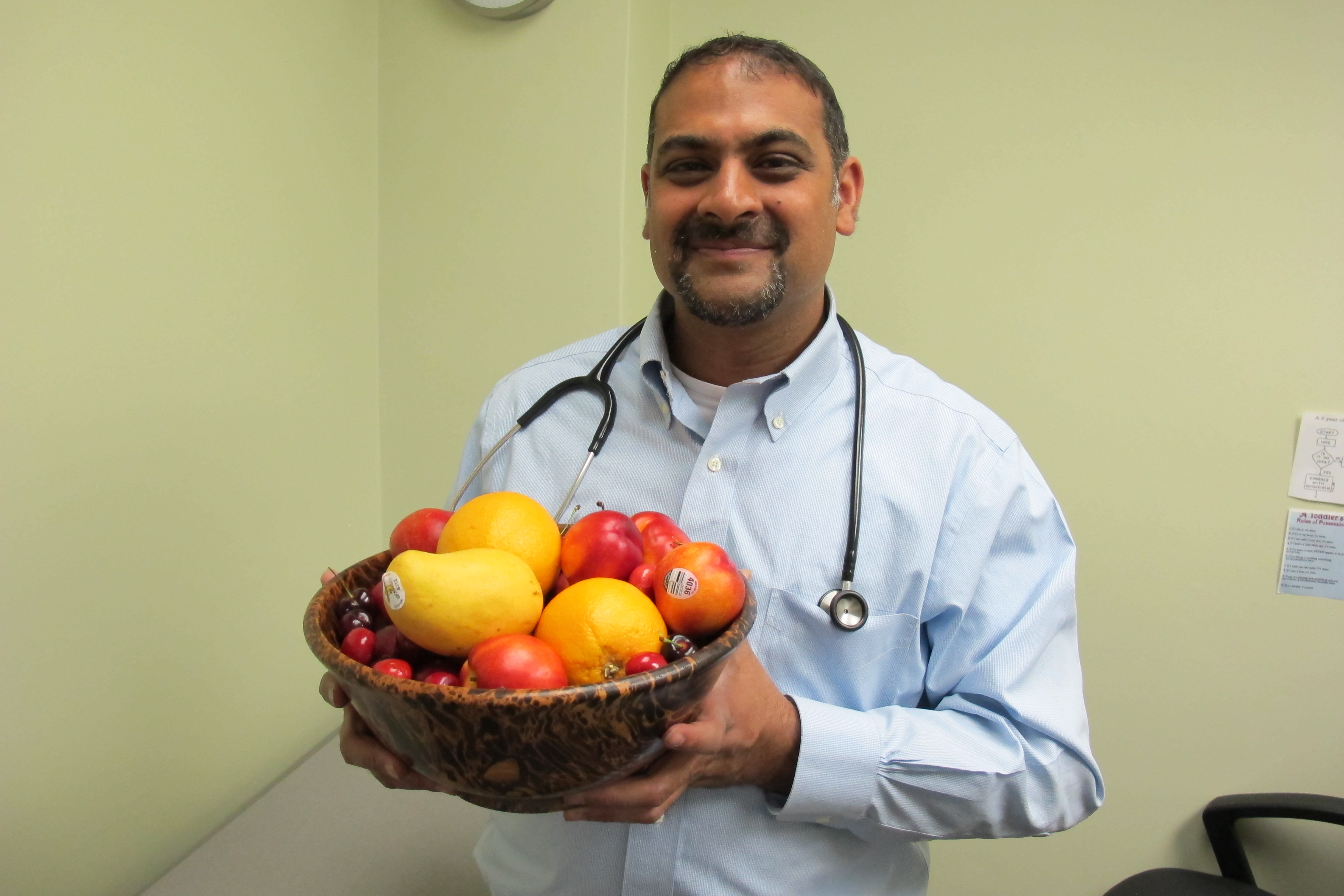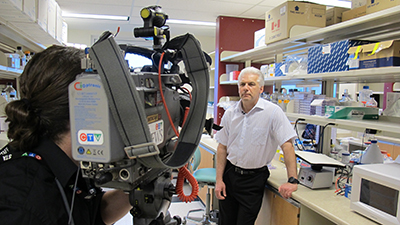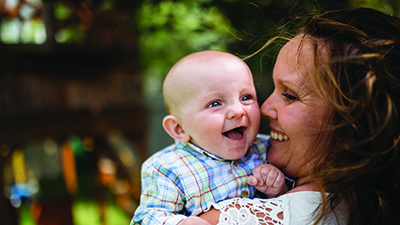
A study showing that mothers who consumed more fruit during pregnancy gave birth to children who performed better on developmental testing at one year of age was referenced by media outlets around the world, making it the number one news story of 2016.
As 2016 comes to a close we look back at the news and newsmakers that helped elevate the reputation of the Faculty of Medicine & Dentistry both in Canada and around the world.
From helping Fort McMurray wildfire first responders, to world first surgical procedures, to research giving insight into how to boost a child's cognition before they are even born, faculty members have left a lasting mark on the world's health over the past year.
Here's a look back at our top 10 stories to hit the news in 2016:
1. Wall Street Journal: Eating Fruit While Pregnant May Boost Your Baby's Intelligence
While eating fruit has long been associated with a healthier lifestyle, new scientific data points out that fruits can be advantageous to babies even before they are born. A new study discovered that mothers who ate more fruits during pregnancy had children who got higher scores in a developmental test performed during the first year of life. "We wanted to know if we could identify what factors affect cognitive development," says senior author Piush Mandhane from the University of Alberta's Faculty of Medicine & Dentistry. The team discovered that one of the most significant indicators of cognition is how much fruit the mother ate during pregnancy.
2. Globe and Mail: How a new Canadian study helps dispel the myth of a 'vitamin D panacea'
Researchers at the University of Alberta are suggesting there might not be as much medical benefit to vitamin D supplements as previously thought. A team led by Michael Allan recently examined the evidence for 10 common beliefs about the pills.
3. Macleans: Researcher tracking health of firefighters in Fort McMurray blaze
A Faculty of Medicine & Dentistry researcher is tracking the health of firefighters who helped battle the massive wildfire in Fort McMurray. Nicola Cherry, professor of medicine at the U of A, took blood, urine and breath samples of firefighters as they returned from northeastern Alberta in a mobile laboratory set up in Sherwood Park.
4. Global Edmonton: University of Alberta researches ways to diagnose, treat Zika virus
Researchers at the University of Alberta have been working for months to find a way to diagnose Zika virus. The work of Tom Hobman, professor of cell biology, and colleague Anil Kumar, was highlighted.

5. National Post: Edmonton kids have better teeth than those in Calgary because of fluoridated water, study says
The fluoride fight may resurface after an independent study has shown the removal of the additive has had a negative impact on children's health. The study, carried out by researchers from the University of Calgary, University of Alberta and AHS, found tooth decay rates increased in Calgary since the city discontinued the fluoridation of drinking water in May 2011. Steven Patterson with the Faculty of Medicine & Dentistry's School of Dentistry was a co-author on the study.
Sixteen years after University of Alberta transplant surgeon James Shapiro's team made global headlines by liberating seven diabetic patients from insulin injections with pancreatic cell transplants, the researcher is testing a new approach that could help even more patients gain control over the disease.
7. CTV Edmonton: Canadian doctors first to implant cancer patients' thyroids in their arms
Canadian doctors have pioneered an unusual way of protecting a cancer patient's thyroid from harmful radiation treatments, by removing the gland and implanting it in the arm. In a world first, doctors at the University of Alberta performed the thyroid transfers in 10 patients with head and neck cancers, which usually involve radiation treatments. While radiation kills off cancer cells, it can also damage surrounding tissue and the thyroid, an important endocrine gland that controls metabolism and other body functions.
8. Global News: Women and children to benefit from historic $54M gift to University of Alberta
The University of Alberta received a joint $54-million gift towards the Women and Children's Health Research Institute (WCHRI). The WCHRI supports research dedicated to improving the health of women and children, including perinatal care. It's the only institute of its kind in Canada. The Stollery Children's Hospital Foundation gave $40 million to WCHRI. The remaining $14.5 million came from the Royal Alexandra Hospital Foundation. This is the largest one-time donation ever given to the U of A.

9. Global News: Fort McMurray wildfire's impact on pregnant women studied in Alberta
A team of University of Alberta researchers is studying how the wildfire in Fort McMurray is affecting pregnancy and child development. The researchers are hoping to intervene early and lower mothers' stress levels to improve outcomes for their kids. Women who were pregnant at the time of the massive evacuation in May or have become pregnant since the fire will be tested for their resilience. David Olson is leading the study.
10. Washington Post: Battle of the bulge: Many of Canada's troops are fat
Arya Sharma, an obesity expert at the University of Alberta, provides comment on a story detailing how just under half of Canadian Armed Forces personnel are considered overweight. Sharma says what's happening with Canadian soldiers is indicative of the weight problems affecting the population at large, noting that many soldiers have desk jobs or other sedentary positions.